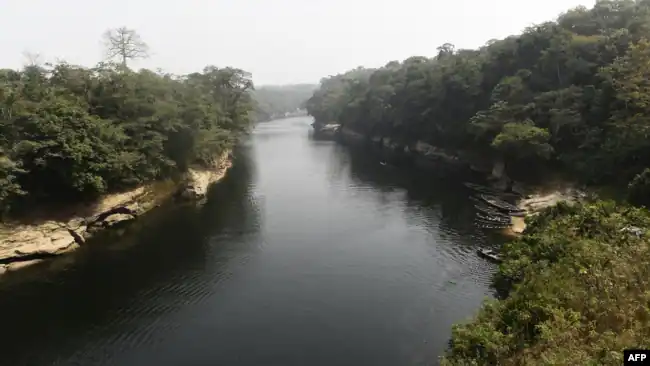Nigeria and Cameroon announced on Thursday their decision to forego a court ruling in favor of a joint approach to resolve their long-standing border disputes. The two countries will validate a demarcation plan on-site, aiming to peacefully end their territorial disagreements.

Covering approximately 2,100 kilometers (1,300 miles) from Lake Chad to the Gulf of Guinea and the Atlantic Ocean coast, the border between Nigeria and Cameroon has been a contentious issue for decades. Leonardo Santos Simao, chairperson of the Cameroon-Nigeria Mixed Commission, expressed his satisfaction with the decision to avoid the lengthy and costly processes of the International Court of Justice (ICJ).
The landmark agreement was reached during a meeting of the Mixed Commission held on Wednesday and Thursday in Yaounde. Both nations have committed to resolving the border disputes by the end of 2025. Simao hailed this development as a significant milestone.
The agreement includes plans to visit disputed territories in Rumsiki and Tourou in northern Cameroon and Koche in eastern Nigeria before the end of 2024. Nigerian Justice Minister Lateef Olasunkanmi Fagbemi, leading Nigeria’s delegation, confirmed the commitment to completing the project within 12 months.
“It’s a consensus between Cameroon and Nigeria. By the end of 2025, this project should be concluded,” Fagbemi stated. “We have so admirably and maturely handled the situation in such a way that there is hardly any dissent. We are satisfied with the outcome of the two-day meeting, and we are hopeful that there is light at the end of the tunnel.”
Both countries acknowledged that the demarcation process had been hindered by Boko Haram terrorism in the region. However, with the group’s diminished firepower, they are optimistic about moving forward with the demarcation efforts.
The Cameroon-Nigeria Mixed Commission, established in 2002 at the behest of Cameroonian President Paul Biya and then-Nigerian President Olusegun Obasanjo, was created to facilitate the implementation of an ICJ ruling from October 10, 2002. This ruling ceded the oil-rich Bakassi peninsula to Cameroon. Initially, Nigeria rejected the verdict, citing its basis on a colonial-era agreement as unfair. Nevertheless, Nigerian officials later agreed to respect the ruling.
By resolving their border disputes through direct negotiations and cooperation, Nigeria and Cameroon aim to build a future of mutual understanding and stability, marking a significant step toward lasting peace in the region.





